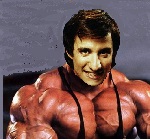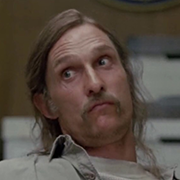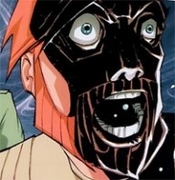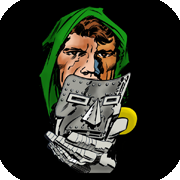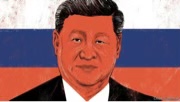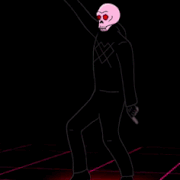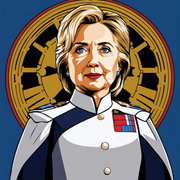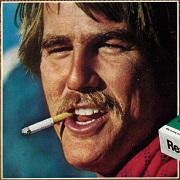|
Shaman Tank Spec posted:A great post. I will never forget how viscerally they succeeded in making the audience feel the thirst of the Marines on Pelilue when they were fighting for an extended period of time with no water. And yeah, love the scene where Snafu protects Sledge from crossing that line. The way Sledge zombie-style repeats "Jap germs" while his mind is computing this new information and the tension on Snafu's face while he waits to see if his story worked is just a flawless scene. There are some scenes from that series that really stuck with me and really hit me in the feels. Spoilered in case people are inspired to watch it for the first time (and they should!) 1. When everyone gets up to salute CPT Haldane's corpse as it comes back down the hill and then Gunny Haney's mind breaks and they have to usher him away. 2. Basilone's widow visits his family, my God, once the emotional glass breaks. And then at the end you see she never remarried. 3. Sledge breaks down while dove hunting. For real, little Timmy Murphy from Jurassic Park was sensational in this series. 4. Sledge's interaction with the mortally wounded woman he mortared on Okinawa. When this episode aired I think I just  at the turned off TV screen for a good 5 minutes after the credits finished. at the turned off TV screen for a good 5 minutes after the credits finished. 5. Snafu lets Sledge sleep peacefully instead of saying goodbye. This scene wrecks me every time I see it Bonus
|
|
|
|

|
| # ? May 5, 2024 01:46 |
|
Wait, the actor who played Sledge was Lil' Timmy from Jurassic Park!?!
|
|
|
|
Sledge breaking down on the hunting trip is legit one of the most powerful scenes in any show or film.
|
|
|
|
Jerusalem posted:Wait, the actor who played Sledge was Lil' Timmy from Jurassic Park!?! Yep, Joe Mazello plays Sledge and Timmy.
|
|
|
|
That explains why he's so cool and collected, he's battled raptors.
|
|
|
|
Gunny Haney is played by Gary Sweet, who was an aussie tv heart throb during the 90s and early 2000s
toggle fucked around with this message at 05:19 on Apr 25, 2024 |
|
|
|
Shaman Tank Spec posted:It's a great show, but god drat it's hard to watch. This is going to come out of nowhere but the end of The Pacific made me think "This is why jazz became what it was post war." I don't know that I'm expressing it right but it was a rando thought considering the headspace of these Marines post war. All those veterans trying to decompress and find peace of mind, it would make sense that they would be drawn to a genre that was relaxed, free form and had no demands on them.
|
|
|
|
It's about the horrific was flashbacks we aren't having.
|
|
|
|
So episode 3 of The Pacific, Melbourne, feels like a major misstep for the show even all these years later. Not because it's a bad episode, it's not, I actually quite enjoyed it! Not because it doesn't showcase the strange dichotomy expected of the soldiers to be near mindless killers in one environment but respectable and upright citizens in another, because it does and that's a good thing to show! Not because it doesn't show the painful impact "back home" for those left behind in a kind of limbo not knowing if their loved ones are alive but also knowing if they are they could die at any time, because it absolutely does and that's important to show and something Band of Brothers was sorely lacking in. Not because it doesn't show the fragility of the development of wartime relationships that both parties suspect are doomed by either death or distance, because it does that too and this is important. The problem with this episode boils down to the same thing as the secret of great comed-TIMING! It's episode 3. We've just had two episodes of rather intense action so you'd think a breather episode might be in order... but we barely know these characters even now, we've barely gotten a sense of who they were before the war and barely gotten a sense of how being in the war has changed them. So an entire episode dedicated to showing them experiencing an oddly familiar yet alien setting in Australia doesn't quite have the impact it could have had if this had instead been episode 6 or 7. I don't think it's unfair to constantly contrast this show to Band of Brothers given it's a direct follow-up to that series exploring the Pacific rather than European Theater, but consider how strong Crossroads hits as Winters spends a brief leave in Paris and contends with the memories of shooting the young German soldier. That was the 5th episode of the show, and by that point we had gotten to know Winters very well. This episode, which mostly focuses on Leckie, is only the second episode to give us a look at Leckie as a character so we're still mostly unfamiliar. Similarly, Basilone being taken out of the war - while itself an important story to tell - after the previous episode was to first to really prominently feature him means we never really got a chance to see the true depth of the connection to J.P and the now dead Manny, beyond the obvious surface level read of how close they were, and now they've already been split up. It might have meant more one or two or even three episodes later, but the timing of the major offensives doesn't really give us the space to explore that. My memories of first watching The Pacific was that this was a bad episode. As noted above, it's really not. But I still agree with my younger self that it does the show a disservice by upsetting the flow of the story. It comes at exactly the wrong time pacing wise, feeling almost like it is meant to be a resetting of the board when we've barely had time to see how things were being laid out in the first place. I noted when discussing the first two episodes that I felt like the series to this point was a series of very strong scenes that didn't quite come together as a cohesive whole (outside of the first episode theme of heightening the "other" sense of the Japanese in the POV of the Americans, and then neatly subvert that in a way that was uncomfortable to soldier and viewer both), and I feel like this episode continues that trend. Just to get it out of the way, perhaps the most embarrassing part of the episode (and perhaps the series? I'll have to get caught up) comes in the bar scene early in the episode, and reminds me unfortunately too much of the similar RAF Boxing scene in Masters of the Air. https://www.youtube.com/watch?v=83AV1aRxoPQ But there is a lot to like in this episode, despite my above reservations. I love that the episode is bookended by near shell-shocked, bedraggled and tattered soldiers reacting with confusion and bewilderment to their adoring welcome by the Australians when they arrive, contrasted with their clean and tidy appearance and similarly enthusiastic attitudes as they say goodbyes to people that went from strangers to friends, lovers and accommodating hosts. I love the initial laxness in discipline of the soldiers and the seeming freehand given to them by Military Police that slowly ramps up to a tighter leash, the soldiers becoming accustomed to following orders again, so that by the time they've sent out on their enforced 100 mile hike everybody dreads but accepts what they have to put up with. I love Chesty dressing down Basilone for his lack of discipline while simultaneously selling him on how he can be an asset to the marines in different ways, followed once he's alone by his private glee at knowing that Basilone's antics are precisely the kind of stress-relief he expected from a marine. Most of all though I love the Greek dad Leckie is the major character of this episode and when he drunkenly propositions a pretty Australian girl on the tram and gets her number for his efforts, he ends up finding himself in a seemingly ready-made family. It's through his conversations with them that we get a better sense of who Leckie is (info that would have been helpful earlier) that somewhat explain why he often appears to live in his own head and is comfortable with impressing only himself with how smart he thinks he is. We see how alienated he is from his own family, despite having the large family his girlfriend's mother dreamed of for herself, and how for the first time as he spends time with them that he grasps just what a family truly can be. The parents are welcoming, doting, the mother in particular clearly leaving a distinct impression on Leckie that indicates he felt some lack in his own. But it's the dad who tickles me pink, just this lovely, jovial dude who instantly takes to the guy who has come sniffing around his daughter (contrast with Phillips' awkward handling of his girlfriend's grandfather as eagle-eyed chaperone), and just seems filled with love and joy for the world. It makes the revelation of the impact of the war on them hit all the stronger. The father checks the newspaper each day for the names of Greek soldiers, concerned about who has been injured, gone missing, of been killed. The names are familiar to him, as expected from a small immigrant community, and when they realize one of the dead living only two streets over and was a boy who went to school with their daughter, they instantly head over with a meal where we see the community rallying around the family as a support network. It's both sad and wonderful, seeing how they all look out for each other, and it clearly leaves a deep impression on Leckie. It makes the end of the relationship hit hard too, because it makes Stella's decision to break up with him hurt all the more: she clearly has strong feelings for him, but she's also practical. He could die in battle, and though he throws that at her like an accusation, it is a reasonable assumption to make. That death would be hard enough on her... but on her parents? To bring in a man who they instantly took to, who could be the son(-in-law) they always wanted but never had, and then to learn that he died? The boy who she went to school with and may have never even thought about in years took a clear toll on them, imagine if it was somebody they were already starting to think of as their own family? Leckie and Phillips leave Australia both depressed - Leckie in particular gets so drunk that he pulls a sidearm on an officer and is lucky to end up only demoted - for different reasons. Leckie's relationship with Stella is over, but not only that, so is perhaps the first time in his life where he saw a vision of what "home" could actually mean, only to have it taken from him. Phillips meanwhile leaves unsure if he will ever see his girlfriend again, and she equally unsure if he will return whether he lives or dies. In one way, it's the proof of Stella's fear: the pitfalls of this kind of relationship may be too much to offset the joy that comes from being part of them. It's another casualty of the war, and one repeated many times over in every country and in every war over every century. It's an interesting and compelling story to tell... just, did it have to be episode 3? Jerusalem fucked around with this message at 07:25 on Apr 25, 2024 |
|
|
|
Bulky Bartokomous posted:good post First of all: mind blown at Sledge being Little Timmy. Holy poo poo. Second, the Gunny Haney thing reminded me of the general duality of these Marines. On the one hand all the veterans are at this point brutal and hardened killers who won't blink twice at the idea of roasting a bunker full of enemies with a flamethrower and then yelling "don't shoot them, let the fuckers burn" when they stumble out. They also relentlessly bully each other, but when the chips are really down and someone is TRULY having a hard time, they are capable of expressing surprising amounts of gentleness and consideration. Aside from the scene where Snafu protects Sledge (and you're right, it is incredibly well acted both by Lil' Timmy and Rami Malek) there's many others where someone gently leads a person away, or where they just collectively make up some convenient excuse to get someone away from the front lines to have a break. I don't really know where I'm going with this. I guess it's just a nice contrast and some pretty good acting from these guys.
|
|
|
|
Jacob Pitts, who plays Rooster, went from Euro Trip to The Pacific and ended up playing everyone's favorite Tim Gutterson on Justified. Joseph Mazzello also shows up on Justified for a bit as a snake handling preacher.
|
|
|
|
Hunterhr posted:Jacob Pitts, who plays Rooster, went from Euro Trip to The Pacific and ended up playing everyone's favorite Tim Gutterson on Justified. Joseph Mazzello also shows up on Justified for a bit as a snake handling preacher. Now it's my turn to be surprised holy poo poo I didn't realize Cooper turned onto Hoosier.
|
|
|
|
Jerusalem posted:So episode 3 of The Pacific, Melbourne, The thing that I remember bothering me about this episode was that they wasted an entire episode on something that was completely fabricated whole cloth.
|
|
|
|
AFewBricksShy posted:The thing that I remember bothering me about this episode was that they wasted an entire episode on something that was completely fabricated whole cloth. explain this please.
|
|
|
|
IIRC Leckie's entire romance plot with Stella was fabricated for the show.
|
|
|
|
Well you gotta have romance in a TV-show!
|
|
|
|
Tankbuster posted:explain this please. quote:Robert Leckie's book, Helmet For My Pillow, has no accounts of a girl named Stella. However, Leckie does mention someone named Sheila in his memoir, who seems to be the inspiration behind Stella in The Pacific. Like Stella, Sheila had allowed Leckie to stay at her home. However, unlike the show, Leckie's friend, Chuckler, had also accompanied them. According to the book, Leckie did not go through the same grief and heartbreak as his television counterpart because he never had a romantic relationship with Sheila. I don't know if Doc Rowe really had a pretty French nurse that he fell for during Bastogne, but they didn't spend an entire episode on it. I think Leckie was just being a drunk rear end in a top hat and that's why he really got demoted, but I'm not 100% on that. I have Helmet for My Pillow, I'll give it a read this weekend and see if I can find it. AFewBricksShy fucked around with this message at 18:29 on Apr 25, 2024 |
|
|
|
Can't recall off the top of my head but I think in reality the nurse mentioned in BoB was from Africa rather than Belgium. There is a black nurse from Congo in the show but just as a background extra that Roe asks about.
|
|
|
|
Her name was Sheila? Or did a he ask an Australian what her name was and the guy said "That Sheila over there?" and he didn't realize that sheila is slang for a woman.
|
|
|
|
Arc Hammer posted:Can't recall off the top of my head but I think in reality the nurse mentioned in BoB was from Africa rather than Belgium. Yeah, there was a real nurse there that had some kind of connection to Doc Roe, but she was indeed black and from Africa. As a fun aside, the unit that broke the German siege of Bastogne and rescued the 101st? The 761st Tank Battalion, although it was left out of the show (and IIRC Ambrose's book) for mysterious reasons. I wonder what those could be?  Oh. I do super recommend Kareem Abdul-Jabbar's amazingly titled "Brothers In Arms: The Epic Story of the 761St Tank Battalion, WWII's Forgotten Heroes", because holy gently caress those guys put up with some poo poo and got next to no credit for their amazing heroics, again for mysterious reasons. Apparently it's finally being made into a movie, and I sure as gently caress hope it's better than Lucas' poo poo-rear end Red Tails.
|
|
|
|
I actually did know about the 761st breaking through. Granted, I learned it from watching Archer Dreamland, but still, that's such a cool historical note that I otherwise wouldn't have known.
|
|
|
|
Arc Hammer posted:I actually did know about the 761st breaking through. Granted, I learned it from watching Archer Dreamland, but still, that's such a cool historical note that I otherwise wouldn't have known. Yeah, it's some real loving bullshit that not only were the unit's heroics acknowledged for decades, they were actively suppressed. They had to wait until 1978 for their Presidential Citation, despite being now recognized as one of the best Allied tank units in the war. They fought for something stupid like 185 days straight in Europe, liberated a concentration camp, broke the siege at Bastogne and suffered horrible casualties because turns out Patton, being the racist turbo rear end in a top hat that he was, figured he'd send the Black Panthers to the worst places. (and Patton 100% was a loving turbo racist, even though later history has tried to white wash him, pointing to a speech where he says he doesn't care what colour his soldiers are, as long as they kill Germans. Sounds good, until you hear the less famous comment he made immediately afterwards to his aide still so close to the men of the 761st that they could easily hear him, to the effect of 'I asked for fighting men and they send me {N-words}") Another fun fact: baseball legend Jackie Robinson served in the unit. Shaman Tank Spec fucked around with this message at 20:36 on Apr 25, 2024 |
|
|
|
Even Patton, who was a southern man so he was racist as gently caress, admitted they fought really well.
|
|
|
|
so the source material left them out of the story? lmao.
Tankbuster fucked around with this message at 21:00 on Apr 25, 2024 |
|
|
|
Yeah the 761st was on par with the 70th, which was a very effective independent tank battalion. And unlike the 70th, it hadn't been in continuous combat since Torch.
|
|
|
|
Yeah, Jesus Christ I have never even heard of this unit. That actually puts a much meaner twist on,"Nobody in Easy Company ever agreed that they needed rescuing."
|
|
|
|
I don't think "We didn't need rescuing" is bad on them, they would say that no matter who got to them. But the military and government at large not giving the 761st their dues is total poo poo.
|
|
|
|
The 761st weren’t directly part of the main relief of Bastogne. Per the wiki https://en.m.wikipedia.org/wiki/761st_Tank_Battalion_(United_States) As part of the effort to drive the Germans from the vicinity of Bastogne, the battalion fought to capture the municipality of Tillet [fr], less than 15 km west of the town, in early January 1945.
|
|
|
|
vuk83 posted:The 761st weren’t directly part of the main relief of Bastogne. That was just one of the things they did. From their own records from December 19th 1944 to January 1945: quote:Moved with 3d Army thru Maginot Line into Germany between Saarbrucken and Strasbourg; arrived at Offagne. In support of 345th Inf Regt of 87th Div, Rondu and Nimbermont, Belgium were taken (31 Dec). With intense fighting, Tillet was taken. Closed the Marche-Bastogne Road, a supply artery for the enemy (5-9 Jan 45). Working with the 17th Airborne Div in an area North of Bastogne toward Houffalize, cut the road from Liege and Bastogne. Gouvy and Hautbillan fell to the combined assaults of 761st Bn and the paratroopers. Forced enemy back to Watermall, Espeles, and Thommen, and captured the towns. Road from St Vith to Bastogne cut (Dates not given). 29 Jan – In support of 3d Bn 346 Regt, moved thru 82d Airborne Div on the north flank; attacked to the south. In support of 345 Regt, attacked town of Huem (30 Jan). Engaged enemy column near Emmerscheid and again over the German border (31 Jan 45). But I admit it's been a few years since I read Brothers in Arms, so I may be misremembering. Many of those places can feasibly be inside the siege cordon, but it's hard to say because the report is so vague. I should fish out my copy and check. E: Or maybe conflating with four segregated (read: all African American) field artillery units that were directly involved in the Siege of Bastogne by being inside the siege: the 969th Field Artillery Battalion, the 333rd Field Artillery Group, the 333rd Field Artillery Battalion and the 578th Field Artillery Battalion. After they took some horrendous losses in the Siege, "the 333rd, 969th, and other artillery groups were commandeered by the 101st [Airborne Division], and formed a temporary artillery group". Also mysteriously absent. I'm not saying Ambrose and the Easy Company guy are racists or anything. It's just strange that there was a really good and easy opportunity to get some non-white people into the show and bring up units that sure as gently caress had their deeds glossed over, but at every turn they just didn't. Shaman Tank Spec fucked around with this message at 19:03 on Apr 26, 2024 |
|
|
|
Arc Hammer posted:Now it's my turn to be surprised holy poo poo I didn't realize Cooper turned onto Hoosier. That's what I get shooting from the hip on nicknames. In my defense I just finished Band of Brothers and haven't started my Pacific rewatch. Will be the first time watching it since it came out, so we'll see if I softened in it like others have.
|
|
|
|
Four episodes into The Pacific and I'm really starting to remember why I don't remember it fondly. Which is a shame, because honestly nearly every component part of the four episodes I've watched so far has worked well for me, but the show's pacing and structure still baffles me to this day and actively seems to work against the show's own interest. The fourth episode, Gloucester/Pavuvu/Banika is, like the 3rd, predominantly concerned with exploring the perspective of Robert Leckie spending time off the line. There is nothing wrong with this as an idea, in fact it's an incredibly valuable thing to do. It's important for the viewer to get a sense of the roiling mass of contradictory emotions, thoughts and feelings of the soldiers actively involved in the horrors of the Pacific Theater, and the endless ticking pressure constantly pushing down on them so that paradoxically it's when they're no longer in danger that they start to feel the most frightened and concerned. When action comes, you act or you die. When the action is over, that tension and paranoia remains, as does the knowledge that the action will come again... but where is it? When is it? More dangerously, as Leckie finds out, is that the more time you have to think, the more time you have to think about the whys of it all as well, and that is sadly counterproductive to what soldiers on the ground and the frontline need to do. The trouble is, as with the Melbourne episode, that this is episode 4, it follows another episode that showed this downtime (albeit in a more relaxing on-leave atmosphere), and we have barely got to know these characters so the impact of all these events on their characters doesn't hit like it should. Leckie was the focus of episode 1 and then largely sidelined in the second in favor of Basilone, then they reversed that for episode 3 and now episode 4 is all Leckie again. As a result, we've spent the most time with Leckie, but nearly 3/4ths of that time has been goofing off with his friends, hanging out in Australia or as in this episode spending some time convalescing in a hospital. Again, the downtime is critically important to show in a series like this, but I'd argue it needs to come after the viewer themselves is as exhausted and beatdown by the endless torment of the war as the character, to really capture that mixture of relief, unsettling feelings of dread, and the creeping thoughts of all the death and destruction they have not only seen but been part of. The show's sense of time, or rather lack of it, is largely to blame here too. Episode 4 takes place over December of 1943 and January of 1944... episode 1's main action took place in August and September of 1942 and the end of episode 2 was Christmas of 1942. It's been over a year and yet the way the show has been structured makes it feel like Leckie and the others have been in action for 2 - 3 months. The breakdown of the men, Leckie's unraveling etc, all makes sense when you consider the months and months of horror they've been exposed to, the dead bodies, the mowing down of the enemy with machine guns, the endless rain and the humidity, malaria and rear end in a top hat officers. But from how time is portrayed in the show, it feels like they've fallen apart with astonishing rapidity, even knowing that this is a dramatization of real events written from the perspectives of the soldiers who were there and experienced them. Leckie and the others were thrilled to discover they were considered "heroes" back home in America at the end of episode 2, but here in episode 4 they're fed up and irritated at seeing the actions of John Basilone turned into comic book adventures and the impression going around that Basilone singlehandedly defeated the Japanese at Guadalcanal. Now they're irritated, depressed, simultaneously itching for and fearing action. Leckie unfortunately gets his chance, as in typical military fashion his shifting into Intelligence to get him away from H Company after his drunken behavior in Melbourne sees him... immediately assigned back to H Company. Bringing up the rear of a patrol in Gloucester, he spots Japanese troops coming up behind them and opens up on them, killing them all which impresses the other soldiers but leaves him shaken. As they wait in the endless rain at night, in something out of a horror film the jungle seems to come alive as Japanese troops suddenly hurl themselves out from between the trees and vegetation and launch themselves at the front line. Leckie here faces the uncertainty of being assigned to wait in the Intelligence tent with an incendiary grenade, tasked with destroying all intelligence if the Japanese overrun them. https://www.youtube.com/watch?v=MR1qXVDCiG8 The result turns out to be far more desperate and horrifying. The Japanese unit had been stricken with malaria and all able-bodied men pulled off the island, leaving behind those too sick or weak to be moved, with 100 of those still able to (barely) move given one final mission to assault and kill as many American soldiers as they could. After the failed raid, the Americans finds their camp, dying Japanese still inside, and Leckie's glee over finding an officer's hardwood case and personal firearm is dampened as he witnesses another soldier - Gibson - silently strangle a dying Japanese soldier to death, turning a wide-eyed stare and an unhinged grin Leckie's way afterwards. The fine line between being a soldier and a murderer is never more apparent, given that nobody gave a second thought to quickly stabbing dying Japanese soldiers to death with fixed bayonets when they arrived in the camp, but this act - while the equivalent of the same killing - is far more personal, slow and cruel. All the men seem to be falling apart to one degree or another, though none quite as horrifically as Gibson, outside of Leckie witnessing one soldier strip naked and shoot himself. It keeps raining, they can't stay dry, and even Leckie's savage little moment of triumph when he steals back the Japanese officer's firearm from a Lieutenant who stole it and the hardwood case for his own use is undermined by the Lieutenant - who can't accuse him of stealing the gun without admitting he had it in the first place - pointing out that he's pissed himself. The doctor tells Leckie he has enuresis and just needs to stay dry to get rid of it, which seems unlikely even when they move to Pavuvu and the rain stops... but the humidity never goes away. Leckie's letters to Vera are bitter, and probably likely to be censored by mail checkers before they go out as he complains about the endless rain, talks about killing "more rats than Japs" and just vents his frustrations. When he urinates in his bed again, he's just had enough, becoming unresponsive and simply laying in his bunk, unmoving, initially feared dead by his fellow soldiers. To beat a dead horse, Leckie's mental and physical collapse makes perfect sense when you consider that at this point in the narrative, we've now reached MAY of 1944. It's 2 and a half years since he walked out of that Church in December of 1941 and told Vera that he'd just signed up to do his part. But it all somehow feels so rushed, so unearned. I'm not saying we should have had 5-6 episodes of endless action first, but the balance is all wrong for the story they're trying to tell. Maybe that would have meant another episode or two showing the soldiers sitting in the jungle, frustrated and aggrieved by not being able to find or fight the Japanese, caught up in the long wait between battles, the mind-numbing boredom. Maybe it's more difficult to make a show like that, but jumping to Australian leave in episode 3 and then spending most of episode 4 in a hospital in Banika doesn't help matters, too much time has passed too quickly, not enough has been seen, we don't know the characters well enough, we haven't grown to feel a bond with them like we had with the likes of Winters, Nixon and the others in Band of Brothers. Or perhaps I should say I rather than we. To me, the show feels more like a - very well shot, very well put together - intellectual exercise in assembling well-made parts of a television show together without grasping the emotional core needed to make them work as a whole episode and certainly not as a whole series. Leckie's time in Banika is intended to show the audience both how badly he needed a rest while also how much worse things could get. His doctor, a very nice and patient man, deliberately tests his enuresis diagnosis and finds that Leckie does have it... but it's just one part of what is wrong with him. He makes no judgment calls, he knows that some soldiers fake things to get away from the frontline, that some don't even realize that is what they're doing. Leckie isn't one of those, but like those men what he really, truly needs is rest. Actual proper rest, in a warm bed with hot meals and without the constant threat of death. It works, even, Leckie is demonstrably better by the time he leaves... but also he isn't. Because as I mentioned at the start, time gives Leckie a chance to start thinking about things, to start asking questions. Gibson is also in Banika, albeit locked in a ward for his protection and others. He tried to steal a plane to fly back to America, and he laments to Leckie that he's ruined his career and potentially his life. Like Leckie, it's clear Gibson needed time away and a rest, but for him it came too late. Leckie avoids that, but he also knows that too much time alone with his thoughts may see him equally incapable of being able to stand the pressure anymore. He convinces the doctor to let him return to his unit, claiming he wants to be be back with them before they're shipped elsewhere and he can't hook up with them anymore. He gives him his stolen and re-stolen gun as a "bribe", and though the doctor sees this as the desperate act of a man who doesn't want to face up to introspection, as he himself noted earlier, this is NOT the time for proper therapy. He'll gladly get into the brains of these men for an hourly fee back in America after "you've won the war for us" but that isn't his job here now. His job is to decide which men can go back to fighting and which simply can't anymore. Leckie is one of the former, and whether that is good or bad for him is irrelevant. Right now he's simply a soldier, there to perform one function and to do it until he's killed or can't do it anymore. The cold, hard arithmetic of war: train these men to be killers, set them loose on the enemy, and keep them going for as long as they can, then replace them until the job is done. This section of the episode is good and has some strong moments. The section in Gloucester is good and has some strong moments. Even the brief time in Pavuvu is good and has some strong moments. Take it all together though, especially in the context of the previous three episodes, and it doesn't all hang together strongly enough to work. At least not for me. By this point in Band of Brothers I knew the characters, their relationships, their struggles and their triumphs, their personalities. I cared about them. By this point in The Pacific, I know Leckie but Basilone and Sledge are still largely ciphers (Sledge didn't appear at all last episode, and has one brief scene struggling to master mortar fire in training in this one), and most of the rest of the characters are seemingly interchangeable and unimportant. They've been at war together for well over a year, and yet it still feels like the war has only just started. Jerusalem fucked around with this message at 08:06 on Apr 29, 2024 |
|
|
|
Jerusalem posted:They've been at war together for well over a year, and yet it still feels like the war has only just started. And here's where the show itself also feels like it just started. It's the end of the first half of the series which to me feels like an extended, iffy prologue to the true meat of the show that comes in the Peleliu and Okinawa episodes. It's long and drawn out but it does help establish the mental state of the longterm marines against the fresh faced Sledge in episode 5 and it does it a lot better there than it did in Ep2 when they contrasted Basilone against Leckie from Ep1.
|
|
|
|
 there are really two halves of The Pacific: Leckie's story in the first half, Sledge's in the second half, with Basilione running between both of them. I think it's the next episode on Pelileu where Leckie meets Sledge and sort of hands the story off to him, and the series gets much better. I admire that the writers tried to do something different from Band of Brothers, but it doesn't always land the way it should. there are really two halves of The Pacific: Leckie's story in the first half, Sledge's in the second half, with Basilione running between both of them. I think it's the next episode on Pelileu where Leckie meets Sledge and sort of hands the story off to him, and the series gets much better. I admire that the writers tried to do something different from Band of Brothers, but it doesn't always land the way it should.Edit - I missed Arc Hammer's post which said everything I did, only better Edit 2: while i think BoB is on balance better than The Pacific, the single-take landing on Pelileu is, for my money, the best sequence in the Spielberg WWII universe, better than any battle in BoB and even better than Omaha Beach in Saving Private Ryan. On every level it's a god drat marvel. Eason the Fifth fucked around with this message at 05:44 on Apr 29, 2024 |
|
|
|
Definitely looking forward to the next episode (it's the start of 2-3 episodes closely linked, from memory?) as I recall the show starting to feel a bit more tightly focused, and even if it was belated at least Sledge was actually part of the story now instead of entirely disconnected beyond his friend being with Leckie's group.
|
|
|
|
I'd highly recommend watching episodes 5, 6 and 7 back to back. It's really exhausting, and in hindsight the misery can be too much, but it's the best way to experience those episodes, one after each other.
|
|
|
|
toggle posted:I'd highly recommend watching episodes 5, 6 and 7 back to back. It's really exhausting, and in hindsight the misery can be too much, but it's the best way to experience those episodes, one after each other. That's how I did it. Watched episode 5, thought "ehh, I'll watch six now too" and then just couldn't leave 7 until the next night. As you say, it's definitely exhausting, but considering that's clearly the thing The Pacific is going for, I'd say that's a good thing. As we say in the wrestling forum, I'm getting worked and loving it. And seconding the thoughts (and J-Ru's insanely good post) above, I really think the show's biggest failure is that they tried to cram too much into just 10 hour long episodes. Almost everything feels rushed, and the time scales involved definitely do not come across in the show. Would've benefited from two or three more episodes at least.
|
|
|
|
The jurassic park kid ruined The Pacific for me.
|
|
|
|
Burns posted:The jurassic park kid ruined The Pacific for me. The Spielberg WWII Cinematic Universe giveth, and The Spielberg WWII Cinematic Universe taketh away
|
|
|
|
At least they never forced Shia LaBouf on us in these. God I hate that guy, just an awful, awful actor. The only movie I ever saw him in that the role suited his rat like energy was in Nymphomaniac.
|
|
|
|

|
| # ? May 5, 2024 01:46 |
|
Anyway, I've been watching The Pacific and just finished Episode 4 last night, and yeah, this is real inconsistent so far. 2 eps in a row largely spent on Leckie and I still don't really have a sense of who he is or what makes him tick. And now it's already 1944 so we've jumped 2 years while not sticking with any sort of story-based throughline as to how we got from Point A at Guadalcanal to Point B at ???. Combat scenes are real well-done, though.
|
|
|



